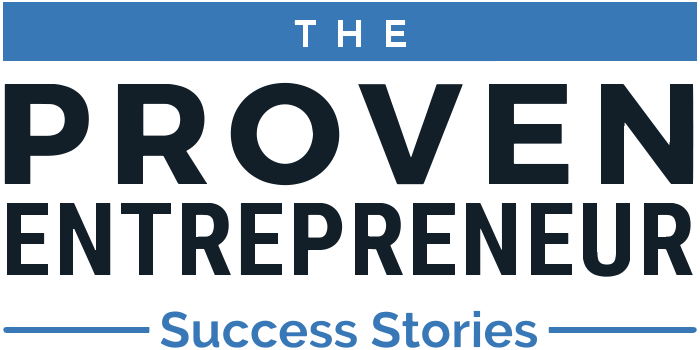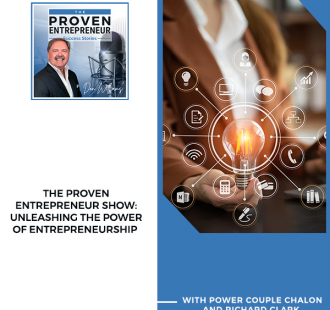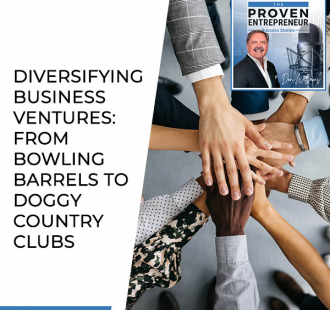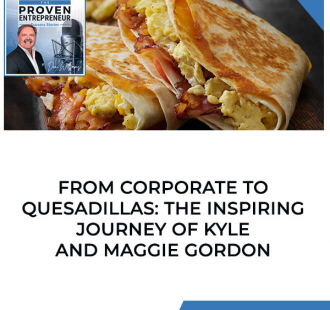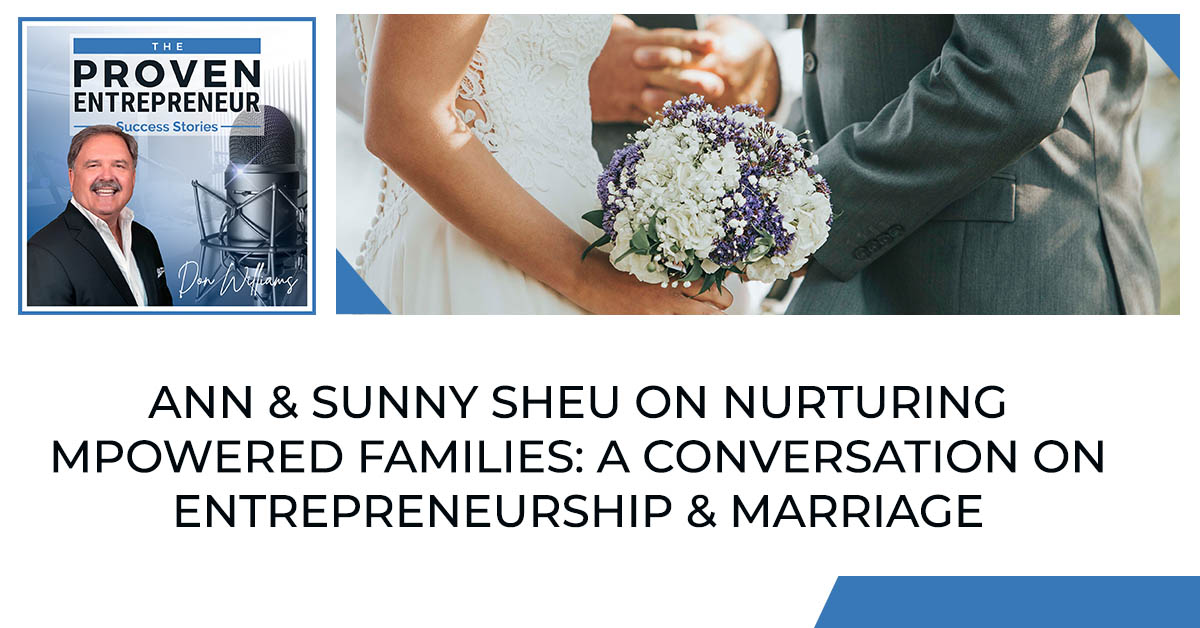
We are about to take an incredible journey into entrepreneurship and the dynamics of a family business with our wonderful guests, Ann and Sunny Sheu, the founders of Mpowered Families. We dig deep into their childhood experiences and learn about the examples that shaped them; you’ll discover how a humble gas station in Louisiana and a toy business turned furniture enterprise sowed the seeds of the successful serial entrepreneurs we have today. The Sheus don’t shy away from discussing the industry’s inherent challenges, emphasizing the importance of life-work balance and sharing how entrepreneurs can sometimes get lost in the all-consuming nature of their businesses. This candid conversation provides insight into how we treat people, reminding us to pay attention to and care about the people around us. Discover how we can recalibrate our family relationships using business strategies and learn about the importance of alignment over achieving perfect scores. You wouldn’t want to miss this episode because this delivers a captivating exploration of life, business, and family. You never know; this episode might stoke the embers of your entrepreneurial journey!
Podcast Show Notes:
In this lively exchange, Don Williams invites Ann and Sunny Sheu, serial entrepreneurs and founders of Mpowered Families, to share their entrepreneurial journeys and how they maintain balance in the realm of business and personal life. From tales of their childhood spent in family-owned ventures to their current passion project, Mpowered Families, this interview dives deep into the life of the entrepreneurial couple. Gain insights into their childhood experiences that shaped them into the business minds they are today, discover EOS (Entrepreneurial Operating System) and how it made a significant impact on their business and relationships, and learn about the importance of prioritizing personal growth in pursuit of success in life and work. If you’re an entrepreneur or aspiring to be one, this episode is a goldmine of wisdom and inspiration. Don’t miss out!
Topics Discussed:
- Childhood experiences as the foundation for an entrepreneurial mindset
- Importance of balancing family, business, and personal life
- Introduction to Entrepreneurial Operating System (EOS)
- The transition from different business ventures to founding Empowered Families
- The role of personal growth and self-awareness in an entrepreneurial journey
Entities Mentioned:
- Don Williams
- Ann Sheu
- Sunny Sheu
- Mpowered Families
- Entrepreneurial Operating System (EOS).
You can find Mpowered Families in the following:
Facebook, Instagram, Linkedin, Twitter, Youtube
—
Watch the episode here
Listen to the podcast here
Ann & Sunny Sheu On Nurturing Mpowered Families: A Conversation On Entrepreneurship & Marriage
I have a real treat for you. I have good friends, Ann and Sunny Sheu. Welcome to the show.
Don, how are you?
I’m wonderful. I’m so glad to have you here.
Thank you for having us.
Let’s start at the beginning. I’m going to take you all the way back to childhood to five-year–old Ann and five-year-old Sunny. It’s a ways back. In your house, however that worked, was there an entrepreneur or somebody who set an entrepreneurial example for you as a young girl?
My parents owned a gas station. Growing up, that’s where we spent our weekends and afternoons after school. I remember that my mom would go to the gas station and open it up early, and my dad would get me ready for school and bring me to the gas station so that my mom could do my hair in the morning before he dropped me off at school.
They don’t have the gas station anymore. We’re in your lovely offices here in North Dallas. Was that here in Dallas?
That was in Shreveport, Louisiana.
Sunny, you’re up. Young Sunny at 5 to 18 years old in your household, was there an entrepreneur as an example?
That was probably around the time my parents started our business. That was a result of a failed venture in a toy wholesale business. They’re trying to sell off some remaining inventory. We opened a little toy shop inside a bazaar. They have had several failed ventures by the time I was five. I saw them grind through it my whole life.
You guys are serial entrepreneurs, and we will get into that. What we know is that those failings aren’t the opposite of success but are stepping stones toward success. That’s amazing. Ann, I know you have multiple businesses. What business gets most of your time and effort?
It’s Mpowered Families. It’s our passion project. It’s where we think we’re going to be able to make an incredible impact in this world. We are on this journey to create healthy and strong families because we know that when you have a healthy and strong family, that is the building block of a strong community. We believe on this journey to create these healthy and strong families, we’re going to be able to impact communities and change the world.
We should spend most of our time talking about Mpowered Families because I know that is your passion. I’m excited for you. It took me a long time to find my passion, identify it, and then put all my effort there. That’s where the best returns are, not just financially but holistically. Sunny, what’s a business, other than Mpowered, that gets some of your time and effort now?
I still own the furniture business. That’s self-managing. I have a great team over there. I spend the bulk of my time in commercial real estate, so retail, some multifamily development, and stuff like that. It’s fun stuff.
You are busy. Ann, I want to touch on the other one.
We believe families are the building blocks or the base of creating a strong community. We take a holistic approach to building your ideal life. We believe that you have to be incredible at family life and focused on your professional life building strong businesses. When you get the business side and family side right, together, it’s magic. If you can do both of those in your life, you’re on track to designing, building, and living your ideal life.
Families are the building block, foundation, and base of creating a strong community. Click To TweetIt makes no sense to reach the pinnacle of success professionally, lose your family along the way, and many times lose yourself, your business, your family, and your personal. If I’m empty, I can’t pour into anything else for sure.
We see it happen so often because business screams the loudest. When things are not going right in business, it’s easy to direct your attention there. As entrepreneurs, it’s easy to pour everything you have into your business and think that your family will always be there, “It’s okay. I can always come back to it later.” What happens is it’s hard for family life to be great when it keeps getting put on the back burner. That’s why it was so important for us to be doing this work, put this work out there, and help entrepreneurs do it differently.
Families are made up of people. As much as we like to think we’re all 6’ tall, invincible, and bulletproof, people are pretty fragile. We have to pay attention to others if we want to get done what we want to do. Both had entrepreneur examples. One, the business is still going and professionally managed. Absentee ownership is the best. Tell me, after your childhood, you went to university, backpacked across Africa, and joined the Merchant Marine. What did you do, Ann?
I had a unique path. I did some project management and IT consulting after college. I eventually found my way to law school and practiced law for a while. I was doing business and employment litigation. I eventually went over to the DA’s office and was in the courtroom. I loved it. At the same time, I was in and out of helping Sunny with the family business. I stumbled upon EOS along the way.
I knew that we didn’t create EOS but when we discovered it, we felt like we had found this cure to business cancer. We started sharing it with all our friends. We were like, “This is amazing. You have to try this.” We were sharing it with our forums and other entrepreneurs that we had in our circles. It caught on like wildfire within our circle. That’s how I ended up in the coaching space. We were using EOS in our business and organically shifted from practicing law to being in the coaching space.
I always think the best EOS implementers that are nomenclature for a coach are people who reap the benefits in their business to where they live it. It’s so much easier to help other people put their feet in your footsteps if you’ve done that. At eighteen, your parents kicked you out. I’m kidding. What was your path, Sunny?
My childhood was unique. It was like, “Go to school and then go to work after all day every day.” At some point, we had two days off in a year, Thanksgiving and Christmas. It’s brute force. It’s very simple, “Buy for $1. Sell for $2. That’s the business strategy, and that’s it. Work your ass off.”
We also outworked the competition. That was all they knew, “If we worked longer hours and worked harder than everybody, then we could grow the business.”
I agree with that to a point. I do think that if you want to dominate your market, you have to be better than your competition. The good news is they generally stink, so it’s not hard to beat your competition. You have two days off a year. You got some time off coming to equal things out. That was all through your childhood. You worked in the family business. When you went to college for your next step, did you stay working in the family business?
If you want to dominate your market, you should be better than your competition. Click To TweetI did everything. We went from toys and started dabbling in furniture. Eventually, furniture became their main thing. We acquired real estate along the way. It was a long, slow, and hard process. College was the first taste of freedom for me in a sense. I still went to work after but that was the first time I was like, “I like not working.” That was very interesting but I had a responsibility. I have a younger brother who’s one year younger than me. We went along the same path. He went to Japan years ago. He pieced out. I was resentful at that time for it but now, it’s the best thing that could have happened to him and even to our relationship.
He was very active in the business while he was here. He moved to Japan and said, “I’m not coming back. I’m done with that.”
There’s a theme in my childhood, at least later, when I realized I was seeking freedom. I felt like this business was locking me down a little bit and definitely was locking our family down. It consumed our lives to the point where my parents ended up separating. They grew further apart. They’re immigrants, so their goal was to not be poor. That was their singular goal. They’re like, “We’re going to not be poor and then work.” At some point, and we don’t even know when, we weren’t poor anymore, but by that time, they had grown apart. They eventually separated. I’m like, “That’s not what I want for myself or my life, to work so hard and then lose the thing that, in my opinion, is the most important.”
I know a lot about your story, and that was at least a part of the seed that grew into Mpowered Families because you both have this driven law school business. At some point, you made the decision, “The main thing is the main thing. The main thing is not business.”
We knew we wanted to do things differently but there aren’t a ton of places where you can turn to learn how to be good at doing family life. We started using what we knew, which was how to run great teams and organizations, and things like getting clear about your values and vision. It’s like, “What do you want from this?” We started applying that to our family life, and it worked.
We were testing for a long time. We were starting to feel success and see success. Our friends were starting to ask us what we were doing. They were like, “How are you going on this many trips but still building great businesses?” They were curious about what was going on, so we would share with them what we were doing. It caught on too. It was cool to see the transformation that was happening in something so raw at the time.
When you started, you got it down and hit 500–foot home runs right off the bat immediately.
A lot of stuff doesn’t apply. One of the cool things is Ann and I were both learners. We’re involved in a lot of learning. We had a lot of personal growth along the way and a lot of opportunities for growth. We applied all the different concepts and then saw what worked in the family setting and what didn’t by visioning and goal setting. I can’t fire Ann from being my wife. That doesn’t work. Some things work and some things don’t. We were able to figure out what works and what doesn’t, but not everything. We’re still learning along the way but we have curated all of what we would call best practices. We have been able to share it and teach it. Other people have seen success too, which is very rewarding for us.
There are some things that don’t apply. As an example, a scorecard in a business is measuring your success but we have something in our Family Alignment Meeting. We teach Family Alignment Meetings. It’s this weekly meeting that you should have with your spouse. Instead of a scorecard, we call it Quick Calibration because the intent is not to score a 10 out of 10 every week. The intent is that we are scoring the same.
One of our metrics is fun, “How much fun did we have this past week?” The intent is not to score a 10 out of 10. The intent is that our scoring is the same. If he says it’s a 2 and I say it’s a 2, then it’s a win because we’re aligned. We’re not rating how much fun we had. That is important. We would love to be both tens but we believe it’s more important that we’re aligned on what the number is than what we scored.
It’s a family meeting with the wife and husband every week.
We call it Your Weekly FAM or Family Alignment Meeting.
I bust out my suit and tie.
I understand. Let’s go back to your earlier entrepreneurial journey. You were entrepreneurs separately. Let’s do this. How did you two meet? How did that happen? Were you hanging around the law school, Sunny?
They’re my crowd.
We have known each other since middle school. We went to middle school together but didn’t start dating until after college.
She was in my brother’s grade, who was one year younger than me.
I’m guessing by that time, you lived here. You met each other in middle school in Garland. You found each other and married.
We started dating. We dated for seven and a half years before we got married.
I had to make sure.
You’re entrepreneurs separately. You met each other, dated for seven and a half years, and got married. You now have three children. How old are they?
5, 2, and 4 months.
You have a busy house. You’re running a bunch of businesses. You’ve got a new startup and three kids. One of them is an infant and one of them is a toddler. There’s no rest at your house.
It is a busy house.
Thinking back on your entrepreneurial path, tell me about a hard lesson, Sunny. If something happened or when the event happened, it was like, “That hurt,” but maybe now, with some perspective and retrospect, you look back on it, and you’re like, “It was a good thing that happened but painful at the time.” Do you have a hard lesson you can share with us?
While Ann and I were dating, she was intertwined in the business at that time. I asked her to come to the family business and give up her law career. There was some conflict in pulling Ann into the business. My parents were still a little bit involved at that time. Long story short, at some point, things didn’t work out. I had to make a choice between my parents and Ann at that time. I didn’t know or think I had to make a decision like that until I came to it.
In some ways, because I had such a narrow and sheltered life, that was a big challenge for me to stand up and be like, “Ann is the one I want to be with. Whatever happens, happens. It doesn’t even matter.” That was a huge step in my growth. That was the worst thing that could have happened to anyone’s relationship, but it solidified our relationship and made me certain that I wanted to be with her and ultimately marry her.
That’s a great story. Thank you. How about you? Tell a hard lesson or something that hurt but now turned out to be good and worked out. I’m sure that was hard at the time.
One of the biggest ones is growing up and my dad was sick. He was always in and out of the hospital. He was later diagnosed with myelodysplastic syndrome, which is in the leukemia family. He had a bone marrow transplant and, ultimately, a kidney transplant. Because he was always in and out of the hospital, it always felt like that hospital visit was just another hospital visit and he would be home soon.
Before he passed, we thought it was just another hospital visit and that he would be home soon. When we realized that it wasn’t going to be another hospital visit, that was it. It was too late. We had treated it very carelessly. We’re like, “He will be home by the next weekend or Christmas.” He passed, and we were on this path to live intentionally. Life got busy, and we found ourselves going back to the way it was before we had learned that lesson.
Sunny mentioned earlier that his parents separated. There was a lot of conflict. There was a huge explosion in the family with me and his parents. It was like, “This is what happens when you’re not intentional. This is for real. Get your crap together, or this is going to keep happening.” It was a huge wake-up call for both of us. It’s so easy to get caught up in that day-to-day life.
It’s so easy to be busy being busy.
You feel like you’re constantly drowning and not making the time to figure out what it is that you want and be intentional about saying no to all of the noise.
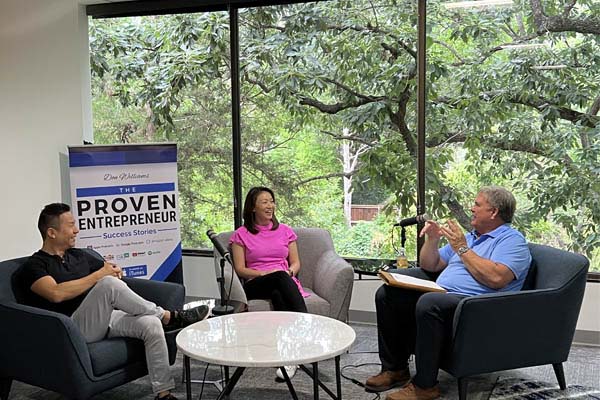
It sounds to me like Mpowered Families was born out of trauma. Entrepreneurs, as we know, are problem solvers. If you give me a hard problem and it hurts, I want to solve it. It sounds to me like that was a huge contributor to where you are. Thank you for sharing those hard stories. What about a nugget of wisdom or something that you hold very dear in your entrepreneurial or family path? I don’t think they’re exclusive but if we knew what you knew, we would say, “That is the golden nugget.” It’s some piece of wisdom you know that I and our audience want to know.
I want to be concrete. I don’t want to be too general. For me, it’s always being on the path to personal growth or higher self-awareness because I’m a learner. Sometimes I’m like, “I’m tired. I want to chill,” but there’s something inside of me that keeps pushing for growth and learning. Part of that is because I go to therapy and all that. We go to therapy together and independently. We get all the help we can get. My parents, as they worked extra hard through life, didn’t do that. They didn’t grow with what they were doing over time, and then they lost their way.
It doesn’t mean they weren’t learning certain things but they weren’t intentional about other things like themselves or their family. If you can always be hungry for learning and growth, then it will serve you down the line no matter what. If there’s one skill or one value that I want my kids to have, it would be that hunger or that curiosity to always push for growth and be the best version they can be. I know that’s generic but it’s true and dear.
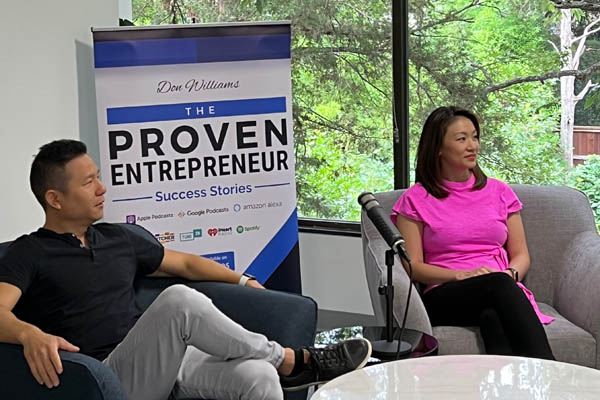
Improvement is so easy. It’s like, “Ask for help. Learn something new. Go do it.” It’s not hard. It’s elemental. Ask somebody who knows. Learn something new. Go do it. Entrepreneurs, as a general rule, are learners and have that thirst because there’s always a next step. There’s always something else.
If you think about it in the percentage of the population, it’s very tiny. Your audience is probably every single person. Otherwise, they wouldn’t be watching it. In the world, it’s not as common as you would think.
We have done about 200 of these interviews. We only interview proven entrepreneurs or people who have a track record. That doesn’t mean they’re always at the top of their game. That is not relevant but they do have a track record. You see a lot of similarities and then some real idiosyncrasies that are unique. Ann, what about a nugget?
If I had to say one thing, I would say, “Get clear about your Decade Dream.” In Mpowered Families, this Decade Dream is the long-term goal for your life. What’s that singular goal that if you achieve this in the next ten years, you’re on track to living your ideal life? We each have individual Decade Dreams and also a Family Decade Dream. We believe this Decade Dream helps get us aligned, get clarity on what you want to do out of life, and say no to all that noise that we were talking about earlier because it serves as your guiding light or your North Star. You can use it to filter all your decisions.
My individual Decade Dream is to have one million Decade Dreams defined by the end of 2029. Our Family Decade Dream is that we’re going to take 2,000 free days by the end of 2029. Free days are a term from Strategic Coach. It’s defined as 24 hours of not working, thinking about work, talking about work, and reading for work. By the end of 2029, we will have taken 2,000 free days together as a family.
The first time I heard that, I was like, “That’s magic right there.” I can do the math. 2,000 days in 10 years is 200 days a year. It’s four days a week. It’s not two days off a year at Thanksgiving and Christmas. It’s barely working or thinking about work. For the Decade Dream, you are going to be in ten years as a family and your individual Decade Dreams. Those are building blocks in the Mpowered Family curriculum. I love that.
Anybody can do it. It’s so simple. It’s thinking about what your ideal life looks like ten years out and what’ that one goal can serve as an indicator of success. We have seen some incredible Decade Dreams come out of the program. We did a workshop for an EO forum. There was a Decade Dream of around a million lives impacted through a gratitude and kindness fund that they wanted to start for their family. They’re going to start a gratitude and kindness fund. Through this fund, they’re going to impact a million lives. That’s going to serve as a filter for what types of vacations they are going to take, what types of businesses they are going to start, and what types of organizations and boards they are going to be saying yes to.
They probably ought to meet an author of a book on gratitude. I’m just saying.
I’ll make the intro.
You probably should do an intro there. We have things to talk about.
I’ll add one more thing. This evolved over time. We didn’t get to our perfect one but now we can help other people get there quicker. It took us years to get to where we are.
Defining our Decade Dream took iterations.
It took a couple of years for you to do it, but I’ve seen you help people do it. It happens fairly quickly. It’s not a big brain lift. You make it easy for people to embark on that journey.
The cool thing is when you get the right one, it changes what you now do versus down the line. It informs everything we do and how we do it. It’s like, “Are we going to start this business? We can start it but it has to be self-managing at some point.” Probably within five years for us to hit the goal, we can’t take 200 days off. Our businesses wouldn’t run without it. We have to be very intentional about building it so that it will be self-managing at a certain point. We need to track it and make sure that it aligns with our Decade Dream.
I love a self-managed business. In one of my businesses, we help entrepreneurs exit their businesses. Many entrepreneurs are working in their businesses. Maybe it’s their biggest asset but there’s a reality confrontation that has to happen. It’s like, “If we could fire you, and this could become a professionally managed business, it’s worth 2, 3, or 4 times more money.” As it is, if we get somebody to buy this business, you have to stay. You say, “We’re the owner,” and now you’re not the owner. That’s not a real plus.
This is probably the toughest question I ask. I’m going to put you in a time machine and send you all the way back to your twenty-year–old self. You get to share something with your twenty-year–old self that you wish you knew then and that you know now that would have sped you along your path and made things easier, faster, and better. The first time somebody asked me this, I was like, “I have about 500 things I wish I could tell myself.” What’s 1 or 2?
There’s a book called The Power of TED* written by David Emerald. He teaches the concept of the drama triangle and the roles in the drama triangle. When we’re reacting from drama, we’re reacting as victims, persecutors, or rescuers. He teaches how to shift out of that and respond from a place of empowerment as a coach, creator, or challenger. It’s the simple concept of having awareness around when I was in drama and understanding that I had control to choose my response. When I learned that concept in my 30s, it changed my life because, before that, I used to say, “Drama is everywhere. It’s at home and work.”
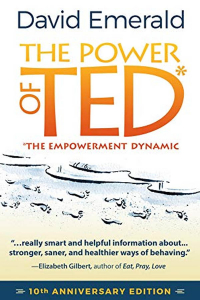
What I realized later was I was the common denominator. I was the drama. I was creating the drama. I thrived on the drama. It was a huge wake-up call for me to realize, “I don’t want to keep living my entire life in drama.” Now I understand that anytime I’m feeling fear, anger, frustration, sadness, grief, or anxiety, I’m in the drama triangle. Sometimes I choose to stay there but now I have the tools that if I want to do something differently, I can respond differently.
That was very impactful for me the first time I learned that. On my self-reflection, I could see where in one particular drama I was hitting all three points. I was chasing my tail and running around the triangle. That’s a great point. Thank you.
It’s a pinball machine. When you’re in the drama triangle, you can pinball between all three rolls in a matter of seconds.
You can get stuck there for a long time.
That’s a core concept we share in the program or the curriculum.
You get to talk to your twenty-year–old self.
This is interesting because I’m thinking about it now differently than how I thought about it. I joined EO when I was 33. I would have said it was the perfect time for me to join but the perfect time would have been when I was younger, as young as possible. I would have said, “I probably wasn’t mentally ready for EO or mature enough for EO,” but no one ever is.
I didn’t know about it but if I had known about it and I would have joined it, my growth would have increased exponentially from there, no matter where I was in my journey. Surrounding myself with high achievers or people I aspire to be is very powerful. It’s to be around like-minded people and to have those conversations and the mindset. You absorb the mindset of the people you’re closest to.
You absorb the mindset of the people you're closest to. Click To TweetI’ve seen so much growth in my life from joining YPO and stuff like that. Surrounding myself with people I respect and taking learnings, I was like, “They did this good. They did this bad.” I’m learning from that and making my formula. Even in our program, having couples who are like-minded, which is a subset of a subset, I’m learning from them. I’ve learned so much. I love being around them. They’re intentional in their businesses and then also their families. That’s who I want to surround myself with.
EO is Entrepreneurs’ Organization, which we’re all members of. It’s how we met years ago. You joined at 33. I joined at 53. When they asked me to join, I was like, “I know all of this. I’ve been an entrepreneur for a long time.” It’s very wise when you said, “I don’t think anybody is ever ready,” but that does mean you’re ready to join. When you’re not ready, it probably is the same thing with Mpowered Families or the family that’s like, “I would like to get a couple of things squared away and then join.” You’re like, “Now is the best time to join.”
Yesterday was the best time but today is probably the second-best time.
We missed the boat yesterday. Tomorrow, we will never get here. Today is all we got. YPO is Young Presidents’ Organization. I was talking with Sean Magennis, who was president for 7 or 8 years of YPO. He used a term that I love. He was like, “The Os.” I instantly knew what he was talking about but you would have to be in 1 of the 2 to figure that out. I was like, “That’s pretty cool.” How would someone reach out? What’s the easiest, fastest, and simplest way to reach out to learn more about Mpowered Families?
Go to our website. We’ve got a ton of info there. My contact information is on our website, MpoweredFamilies.com.
There, you can learn more about the program and reach out to Ann and Sunny.
We can share its format so everyone knows if that’s okay.
Give us an outline.
It’s a one-year program. You join the program with a cohort, so you’re able to create a community with other like-minded family leaders. During our program, we’re helping the family leaders get clear about their family values, their vision, and what their ideal family life looks like and define their Family Decade Dream. We’re not trying to get everyone to take 2,000 free days but what’s your version of 2,000 free days. We’re helping you understand each other on a very deep and authentic level so that you can be strong family leaders and create a healthy and vibrant family.
Sunny, thank you so much for being on the show. I’m grateful.
Thank you so much.
Thanks for having us.
We’re honored to be here.
That’s the episode. See you next time.
Important Links
- Ann Sheu – LinkedIn
- Sunny Sheu – LinkedIn
- Mpowered Families
- EOS
- EO
- The Power of TED*
- YPO
- https://www.Facebook.com/WeAreMPFamilies
- https://www.Instagram.com/WeareMPFamilies
- https://www.LinkedIn.com/company/Mpowered-Families/
- https://www.Twitter.com/MPFamilies
- https://www.YouTube.com/@MpoweredFamilies-Dallas
About Ann Sheu
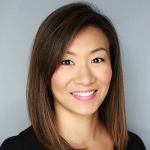 Ann is a visionary thought leader, speaker, and entrepreneur who has built multiple successful ventures and is uniquely positioned to help open-minded and growth-oriented individuals thrive. She achieves this by creating learning environments and providing tools that inspire new ways of thinking and living.
Ann is a visionary thought leader, speaker, and entrepreneur who has built multiple successful ventures and is uniquely positioned to help open-minded and growth-oriented individuals thrive. She achieves this by creating learning environments and providing tools that inspire new ways of thinking and living.
In addition to being an entrepreneur since 2004, Ann has 16 years of experience helping organizations systematically improve as a consultant, advisor, board member, and coach. These experiences, paired with both business and law degrees, give Ann a very holistic view of business and allow Ann to pull from a wealth of tools and perspectives to aid her clients in their journey.
As the founder of Mpowered Families, Ann and her team strive to empower high-performing couples and families with the tools and guidance to cultivate a family life brimming with purpose, alignment, and profound connection. The Mpowered Families mission is to assist families in crafting a collective vision, enhancing communication, and proactively embracing the intentional path toward the fulfilling life couples aspire to co-create.
As a Certified EOS Implementer, Ann combines proven business principles with practical, real-world tools, to accelerate growth, drive meaningful outcomes, and create high-performance organizations.
Ann’s mission is to cultivate empowered communities to live intentionally. As a highly sought-after speaker, Ann shares 3 mindset shifts to help individuals live a radically intentional life. Ann lives in Dallas, TX with her husband Sunny, and their 3 children.
For information on how to work with Don visit Work With Don Williams
You can also reach out to Don Williams at https://donwilliamsglobal.com
Please join Don and his businesses in support of St. Jude’s Children Research Hospital in its Mission to cure Childhood Cancers. You can donate to St. Jude at stjude.org/donate
